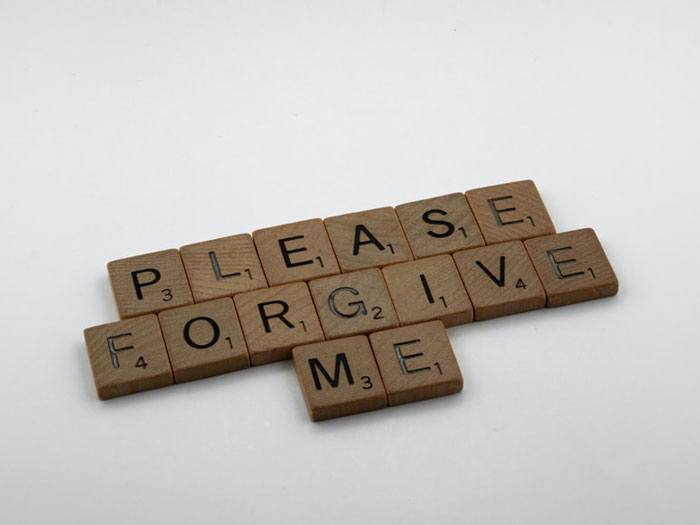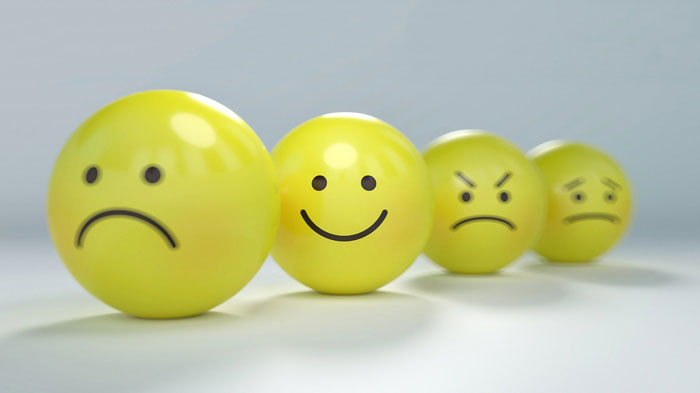Keeping emotions well in hand is not the easiest task, but with some people, it doesn’t seem to work at all. They tend to speak out of turn, or they fall into the habit of denouncing others while not being able to stand criticism themselves. These emotional shifts that make people unpredictable and even unreliable can mean that these individuals don’t possess enough emotional intelligence.
What Is It When Emotional Intelligence Is High Or Low?
When emotional intelligence is low, it usually means that an individual can hardly perceive their own and other people’s emotions to such an extent as to logically shape their responses and actions.
Insufficient Self-Awareness Produces Strong Opinions
People possessing undeveloped emotional intelligence tend to be dead sure they are in the right – one of the reasons why is because they disregard others’ viewpoints. Consequently, they often have to fall out with others.
This condition can be explained by the individual’s difficulty in getting in touch and expressing their own feelings, as well as other people’s feelings; this inability prevents from analyzing mistakes, chalking them up to experience and benefiting from them.
Feelings Of Others Pass Unnoticed
Somehow other people’s feelings get passed by or dismissed. It can result in being astounded that those around low-emotional-intelligence persons may not think much of them, harbor grudges and get angry.
It can often irritate them when somebody believes they understand their current emotional state.
Grave Sensitivity Issues
It is not so easy for those whose emotional intelligence is on the low side to know what would be appropriate and what wouldn’t. Their actions and remarks may be badly timed and totally unfitting to the present situation. Even well-intended jokes could come out all wrong.
But when they have their solecisms pointed out to them, they get either surprised or defensive – they cannot read the surrounding people’s emotions, so they have no clue as to what is going on around them in terms of emotion.
They Are Inclined To Lay The Blame On Others

Individuals characterized by low emotional intelligence don’t understand that their unchecked emotions can cause problems. Consequently, they never feel they are responsible when such problems spring up.
So, whenever they feel a troublesome situation is brewing, they look around for a person who must be at fault. Their responses are justified because they could react only in this fashion. It was someone other who should have behaved differently.
They broke a vase, omitted to complete their assignment, failed to land the job – whatever it is, the blame will be laid on someone else’s doorstep.
They Jump To Inferences And Assert Their Truthfulness
Low EQ customarily makes people very quick at generating opinions that are instantly registered as true ones. When their opinions get criticized, they are vehement in defense, tending to dismiss any things that can refute their beliefs and stick to what goes along with their ideas.
If the person is a leader or chief manager, this practice can be highly toxic! They will build strategies on their immature ideas. While bright guys are apt to play with their ideas, lay them aside and then think them over afresh, the ideas get richer and better, and lose their dependence on emotion. It is also advisable to try counter-arguments. Eventually, such ideas grow ripe for introducing them to others, can come across in the most efficacious manner and be accepted more easily.
Dealing With Emotional Situations Proves Difficult
Poor emotions don’t allow people to manage emotional events successfully. These individuals go out of their way to escape situations that can be overwhelming emotionally. If they don’t get involved, they won’t have to feel an emotional upheaval and can go on concealing their emotions.
They Are Full Of Grudges
Some negative feelings generate strong grudges; it usually occurs under stress. When a particular event comes to mind, you can automatically want to fight – or run away as fast as your legs can carry you. The survival instinct hits you when encountering a threat – but it can recur even if the threat is long gone. The stress remains and it may be triggered by a vivid remembrance. If it recurs regularly, it may affect overall health and cause various ailments.
When someone harbors a grudge, it actually means that they prolong the related stress – something that should really be avoided. People who give their grudges up have brighter moods and sturdier health.
They Are Narcissistic And Self-Focused
Emotionally slowed-down people want their share of attention – and a fat one, too. They like to dominate conversations and be the cynosure of everyone’s eyes. Any discussion should revolve around them and their favorite subjects.
Such individuals come across as great ones, with plenty of achievements and credits to their names. If they are facing a venerable expert, they will still be hinting at their superior capabilities drawing attention to themselves.
Their Emotional Vocabulary Is Below Average

It’s always a perplexing task to identify and explain one’s emotions. High EQ often means that the person is able to understand what they feel and maintain control over their emotional states. They enjoy the advantage of a vast lexical store with which to explain how they feel.
Some people find it enough to say they feel “bad;” those who are more aware in terms of emotion will define their condition more precisely, saying they feel “annoyed,” “put upon,” “frustrated,” “overridden.” Being more specific about one’s emotional state allows one to identify feelings better and come up with knowing what can be done next.
They Believe They Are Constantly Misunderstood
Insufficient emotional intelligence doesn’t let people understand what impression they produce on others. Whatever they say or do, they can’t be sure they succeeded in conveying their meaning well. It is difficult even for emotionally developed people. Still, they can discern when they failed to make themselves understood, alter their wording, approach the issue from another angle, and one way or another achieve their communicative aims.
Outbursts Are Common With Them
One of the things emotional intelligence helps with is regulating emotional states. This is not so with people whose emotional intelligence is lower than necessary: they lack understanding of what is happening to them, still, they respond quickly and can do it violently if they find the stimulation too strong.
Therefore, low EQ is linked to frequent emotional outbursts that may seem unwarranted to those around such people. They are easily triggered into abnormally long tirades and can go on indefinitely.
Relationships Are Often Problematic
With such difficulties, it’s no wonder individuals who lack emotional intelligence cannot boast a lot of friends. Healthy relationships are grounded on emotional sharing, empathy and providing support, but if these abilities are poor, relationships don’t develop. Low-EQ individuals are usually perceived as harsh and callous.











